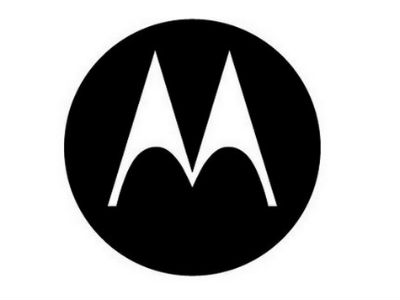Zoom's Moto-Branded Cable Modem Launch 'On Track'
The smarter way to stay on top of the multichannel video marketplace. Sign up below.
You are now subscribed
Your newsletter sign-up was successful

Zoom Telephonics is “on track” to debut a lineup of cable modem products in January 2016 that bear the Motorola brand and will be offered via various retail channels, Zoom president and CEO Frank Manning said earlier this month on the company’s second quarter earnings call.
Zoom, under an exclusive five-year licensing agreement announced in May, will use the Moto brand in cable modems/routers and set-tops (as well as cable modems inside set-tops) sold at retail in the U.S. and Canada starting in 2016. At that time, Zoom will take over Moto branding rights that have been with Arris, which acquired the Motorola Home division from Google in April 2013 for $2.35 billion
“We are on track with the Motorola opportunity,” Manning said, noting that Zoom has made “great progress in product development, certifications and discussions with retailers, specifically.”
The focus now is to introduce a new line of Motorola-branded products starting in January 2016, Manning said, noting that Zoom’s initial plan is to offer six products and that the company has been working with a third-party industrial company on new designs. Zoom’s Motorola products won’t carry the Zoom brand, but Zoom also plans to continue selling cable modem products that use the Zoom brand.
Manning didn’t go into further detail about the coming Motorola-branded product line, but said the initial focus is on modems with various downstream and upstream speed capabilities, with hopes that it will expand into other product areas. While DOCSIS 3.0 modems with 8x4 configurations are among the most popular models at retail, the latest D3.0 chipsets support 24x8 and 32x8 configurations.
Arris, thanks in part to the Motorola brand, has dominated the retail market for DOCSIS cable modems and gateways. Manning estimates that about 10% of cable modem sales come way of retail, with the rest sold via direct-to-MSO deals. But he said Zoom is prepared to target retail aggressively.
“We don't just want to maintain the Motorola market share; we want to grow it,” he said, reiterating that he believes the Motorola plan represents a $50 to $100 million per year revenue opportunity for Zoom. “The fact is, Motorola is the strongest brand for cable modems, so that gives us an important advantage."
The smarter way to stay on top of the multichannel video marketplace. Sign up below.
Manning was also optimistic that Zoom will be able to draft a bit off of Lenovo’s acquisition of Motorola’s smartphone business from Google. While cable modems and smartphones are obviously different products, “there are things you can do to give a consistent brand image,” Manning said.
Manning said it’s too early to say how much shelf space his company will get at retailers, as those discussions are ongoing. He also expects continued competition at retail.
“Clearly Arris is not giving up and running away,” he said. “They’re trying to compete [at retail].”
He said Arris has yet to compete with “severe” pricing tactics, but believes having a known brand, rather than deep cuts on pricing, represents the path to retail success.
“We already know that it doesn't work. Zoom's had a great price and we're on the shelf,” Manning said. “We do reasonable sales, but Motorola dominates our sales right now. I think that says a lot about the importance of brand."
Though retail is Zoom’s cable modem focus, the company is also preparing to engage more directly with MSOs, particularly those that are outside the top three. Manning said Zoom, which has butted heads with Comcast and Charter Communications (subscription required), is looking to hire sales managers who have expertise in selling directly to MSOs, noting that the Technicolor’s proposed $600 million acquisition of Cisco Systems’ CPE business is “probably going to leave some people looking for jobs."
While that deal offers some potential possibility, Zoom is also working with search firms and industry groups as it sizes up that direct-to-operator market.
While Zoom believes the Motorola brand will give it a leg up in the retail market, it’s overall business is dwarfed by its bigger competitors. Zoom posted Q2 net sales of $2.59 million, and a net loss of $106,000. The vast majority (98%) of revenues are from U.S. sales, and 85% of net sales are from cable modems.
The company recently raised $268,740 in a rights offering that involved the sale of 298,600 shares at 90 cents each. "While this is a modest capital raise, it's sufficient for the near term,” Manning said, adding that Zoom hopes to raise more funding later this year.
